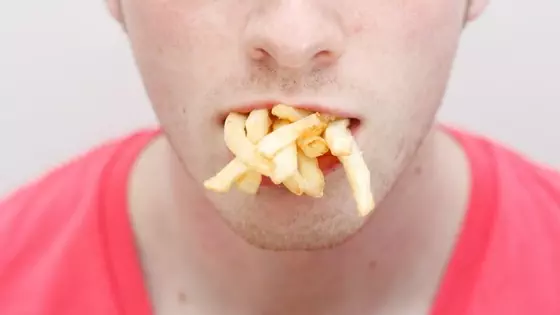Dear Bariatric Foodie is a blog series where we tackle questions received from folks in the Foodie Nation. If you have a question you’d like to see covered, email nikki@bariatricfoodie.com. The advice given in this article is not professional advice and should not be used to replace the advice of a medical or mental health professional.
So I see this a lot. You got weight loss surgery and you are doing your best. You’re not 100% compliant, but mostly so and you are trying to get better each day. You’ve made it to six months or maybe a year and you’re losing the weight and feeling great! Then you hear a friend or co-worker is having weight loss surgery.
And you think, “Great! It’ll be good to have someone who can relate to what I am doing!” And at first that person uses you for the wonderful resource that you are: asking questions about surgery prep, vitamins, protein supplements. You’re happy to supply that information and hopeful about their progress until…
Three months after surgery you “catch” them eating French fries.
And you let it go at first. It happens sometimes. Moderation, right?
But then the next time you see them, they are eating candy. Like…with real sugar. And now you’re a little bit concerned. Should you say something? Is it any of your business? Will they get mad at you if you bring it up? In your heart of hearts you want to help this person be successful, and you just don’t think they are going the right way.
So…should you do it? Should you approach them and bring up that you’ve seen them eating poorly.
My advice: It’s tricky…but worth considering. But before we talk about how to address this, let’s first talk a bit about some things you should take into consideration.
Behind the Curtain
In reality you don’t know what’s going on behind the curtain. It really does depend on who that person is in your life. If it’s a person you see fairly often and you always seem to see them eating unhealthy foods, I think it’s fair to assume that this may have become a habit. But just remember that you may not know everything going on behind the curtain. If it’s a person you don’t see every day, for example, you may not know if that is an everyday occurrence or a moderated treat. Also, unless you two have the same surgeon in the same bariatric practice, you likely don’t know what plan they are on. We’ll discuss my advice on how to proceed in a moment, for now I just want you to remember that you probably don’t have 100% of the information of what’s going on so the bottom line is that whatever you do, do not get judgy! You don’t know what’s going on behind the scenes.
Tone is Everything
And if you put yourself in the shoes of your friend or co-worker that becomes easy to see. Let’s assume for a moment you are right, that the person is veering off-track. If that were happening to you, how would you want someone to approach you? While we are all different, I think if we put ourselves in the shoes of the person we are concerned about, that changes the way we approach things. For example, maybe you don’t charge in with “should you be eating that???” (Which, I don’t care how good friends you are, is probably not going to end well.) Instead, maybe you might strike up a conversation about how life in general is going and progress into other subjects. But your tone is everything. Again, don’t be judgy. Which brings me to my next point.
Are you concerned for them or are you concerned for you?
Don’t look at me like that. Yes, I asked it!
Sometimes we are concerned for a person and their progress and struggles. But sometimes, deep down, if we are honest with ourselves, we are concerned with ourselves. In my estimation this can manifest itself in several ways.
- You are concerned that if your friend goes off track easily that their behavior might influence you to go off-track too. This is actually a fairly reasonable concern as even science shows that who we hang out with matters.
- You are concerned because being concerned casts you as the “good, right and compliant” friend. It’s sort of the same dynamic as the friend/brother/sister who felt all weird when you lost weight because you used to be “the fat one.” You have a certain way you think about yourself and, like it or not, some of how we think of ourselves is relational to others. So your concern may be coming from a place of affirming that you are doing the “right” thing to your friends “wrong.”
But let me get clear about something. Being concerned with the above two things does not (necessarily) make you a fake friend. Like I said, we are human and a big part of our identities as individual humans is actual relational to other people (you a sister or brother because you have a sibling, for example). But your source of concern is just as important as their behavior precisely because it will affect the tone and approach of how you attempt to help, should you decide to do so.
So what should you do?
Well I can’t make the ultimate decision for you. But I will tell you the first thing you should decide after you consider the above is IF you are going to attempt to help at all. You may feel obligated to, but you are not. But there is one elephant in the room that we should address in making that decision.
We tend to be antsy about intervening in other people’s health issues at all. Even aside from obesity if someone looks sick, we feel hesitant to say so for fear the other person will think we are implying they don’t look good. Or maybe we ignore obvious signals that someone is not doing well because we think it’s none of our business.
This is just MY personal opinion. There is nothing wrong with inquiring about the health of a person you care about. Again, the approach, tone and motivation are of utmost importance when you do, but if you are concerned about someone – like really, truly concerned – it is my opinion that it’s ok to tell them that. You are in a relationship with that person, a friendship. Relationships require communication and failing to communicate is one big reason relationships fail. Again, that’s not any kind of professional advice, just Nikki’s opinion!
So let’s say you decide you want to say something. Here is my advice.
It’s not only about the food.
Which is why it’s best not to just jump in with “I notice you’ve been eating x, y and z…”
That is in fact food policing and it sends a bad message. First it sends the message that what the person is eating is what’s important to you. Second, it makes them feel watched and judged, which isn’t likely to be well-received.
Instead, if this person is someone you care about at all, start a conversation with them. Ask them how they are doing lately. What’s been going on in life? And after you’ve found out how your friend the person is, I think it’s perfectly ok to ask them how their efforts toward a healthy life are going. Again, we are not getting into what they are eating and not eating. Eating habits are often symptomatic of other things. Unless you are a health professional, you aren’t a health professional! But you are a friend who can listen and even one who can empathize by virtue of being a post-op. That’s your role. Not food police. But friend.
If your friend brings up their struggle with food, great. If not, don’t press.
Especially if you’ve asked how their healthy eating routine is going, if they don’t offer you the information you want, they obviously don’t want you to have that information. That may seem like you are leaving your friend out to dry, but really you’re respecting them as an adult human being.
Now what I will say is that empathy is a good route to that discussion. So if you’ve struggled anywhere along the line, admitting that to your friend may make them feel more comfortable opening up to you. But if they still don’t, you sort of have to respect that.
You are not a dietician. And you don’t play one on TV.
If your friend does open up to you, the desire can be strong to give nutritional advice, or even suggest they eat what you eat. And here’s why I think you should not do that.
Firstly, you two have different bodies. And therefore you may need to be on different plans. The only way to know is to work with your bariatric team. By giving advice, you may help your friend – but you may also make them feel like they don’t need to discuss their struggles with their team.
I’m not saying it’s not ok to make food suggestions in this situation. What I am saying is that you might also consider encouraging that person to talk to their team about their struggles so that they can get ongoing help.
If nothing else, you don’t have time to be this person’s sole source of support! So make sure they know they have even more people on their team that they can access for help.
Last but not least, be a FRIEND.
If the person decides to open up to you, that’s what they need. A friend. To me, that means:
- You care about the entire person, not just about what they put in their mouth.
- When asked for advice, you are honest but not intentionally mean or harsh.
- That you don’t cast yourself as better or worse than that person. You try to empathize and relate to their overall struggles.
- That you know you alone cannot “fix” all your friend’s problems – and you don’t try to or even promise to.
If you can’t be a friend in the situation, I would definitely say don’t approach it at all. You may make the situation worse.
Bottom Line
No, it’s not ok to food police your weight loss surgery friends.
Yes, it’s ok to be concerned if you see them exhibiting unhealthy behavior.
No, it’s not ok to call them out (publicly or privately) on what they put in their mouth. They are grown and are technically allowed to eat whatever they want.
Yes, it is ok to find out how they are doing as a person in life in general and to ask specifically about their weight loss surgery process.
No, it’s not ok to impose advice on your friends if they didn’t ask for it or don’t seem to want it.
Yes, it’s ok to be honest (but respectful) if you are asked for advice.
No, it’s not ok to be the food police.
Yes, it’s ok to be their friend.
 Bariatric Foodie Play with your food
Bariatric Foodie Play with your food



Trying very hard to eat better, thought this book may help in that.